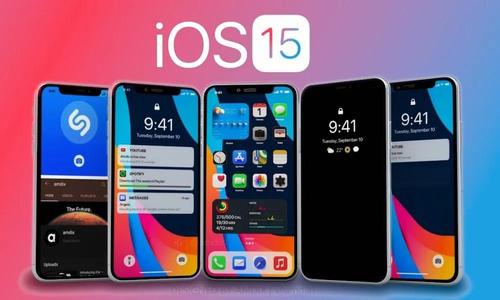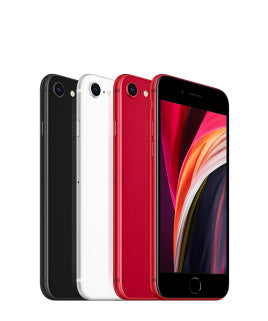
There are four new iPhone models this time around: the iPhone 12, the iPhone 12 Mini, the iPhone 12 Pro and the iPhone 12 Pro Max — each with their own form factors and improvements.
Here’s iPhone 12 vs iPhone 11 preview comparison that breaks down all the biggest changes.
iPhone 12 vs iPhone 11: Models and sizes
The entry-level iPhone 12 is the 5.4-inch iPhone 12 mini, which represents a new size for Apple. There's also a 6.1-inch iPhone 12, sized similarly to the regular iPhone 11.
As you step up to the Pro phones, the iPhone 12 Pro also comes in two sizes: 6.1 inches for the iPhone 12 Pro and 6.7 inches for the iPhone 12 Pro Max. The iPhone 11 Pro and iPhone 11 Pro Max are 5.8 inches and 6.7 inches, respectively. Overall, Apple's new iPhone 12 lineup offers more choice than the iPhone 11 roster did.
iPhone 12 vs iPhone 11: Design
The iPhone 12 line has gotten quite the makeover, thanks to flatter sides instead of the iPhone 11's rounded design. This makes Apple's latest handsets draw a familial resemblance to the iPad Pro 2020.
Unfortunately, rumors of a slimmer notch have not come to pass; the iPhone 12's cutout for its TrueDepth camera and earpiece appears roughly the same size as it always has. However, Apple has trimmed the bezel around the Super Retina XDR displays in all iPhone 12 models, resulting in a slightly more expansive screen-to-body ratio. According to Apple's measurements, the 6.1-inch iPhone 12 is 11% thinner, 15% smaller and 16% lighter than the 6.1-inch iPhone 11.
The iPhone 12 and 12 mini come in five colors (black, white, Product Red, blue and green), while the iPhone 12 Pro and Pro Max come in four (graphite, silver, gold and Pacific Blue).
iPhone 12 vs iPhone 11: Display
All four iPhone 12 models will feature Super Retina XDR OLED displays like the iPhone 11 Pro, while the iPhone 11 offered an LCD screen. There are several benefits of OLED vs LCD, including deeper blacks, more vibrant colors and wider viewing angles. Overall, the switch to OLED represents probably the biggest improvement or positive difference an iPhone 11 user is likely to appreciate in moving to an iPhone 12.
Interestingly, Apple wasn't able to deliver 120Hz refresh rates on its Pro-series models with the iPhone 12, as it had been rumored to do in the months leading up to launch. Battery concerns were reportedly the culprit for the omission, which certainly makes sense given that all iPhone 12 models support millimeter-wave 5G, which can be pretty power hungry.
iPhone 12 vs iPhone 11: Specs and performance
The whole iPhone 12 line Apple's new A14 Bionic processor, which promises MacBook Pro-like performance based on leaked benchmarks. This is Apple's first 5nm chip, compared to 7nm for the A13 Bionic, which should result in better efficiency as well.
The A14 Bionic chip, made by TSMC, promises 15% faster performance while using 30% less power. And that's before Apple does its own optimizations. During Apple's iPhone 12 reveal event, the company quoted 50% faster GPU and CPU performance compared to the A13 Bionic, which even exceeds the 40% improvement some leaks had claimed.
Apple never lists the RAM of its phones, but the iPhone 11 and iPhone 11 Pro reportedly feature 4GB of RAM. A report from UBS analysts picked up by MacRumors says that the iPhone 12 will have 4GB of RAM while the iPhone 12 Pro lineup will get 6GB, though of course we won't know for sure until tear downs are published.
iPhone 12 vs iPhone 11: Cameras and LiDAR scanner
The iPhone 11 and iPhone 11 Pro proved to be among the best camera phones on the market, thanks to their great Night Mode and next-generation Smart HDR. The iPhone 11 featured a standard wide and ultra-wide lens, while the iPhone 11 Pro series added a telephoto zoom.
For the iPhone 12, the regular 5.4-inch iPhone 12 and 6.1-inch iPhone 12 are slated to offer two lenses once more, and the iPhone 12 Pro and iPhone 12 Pro Max have three cameras plus a new LiDAR scanner.
This advanced time-of-flight sensor, which is already on the iPad Pro 2020, assists with autofocus and subject detection in video recording and when using the phone’s cameras in Night Mode.
As for the other cameras, Apple is utilizing a wider ƒ/1.6 aperture for the primary camera in every iPhone 12, as well as a new seven-element lens design that is said to markedly increase the quality of photos, particularly in medium- and low-light scenarios. The iPhone 12 Pro Max in particular sports a larger image sensor with Sensor Shift image stabilization technology, and its telephoto lens achieves 2.5x optical zoom. That's a step up from the 2x zoom of the iPhone 11 Pro, 11 Pro Max and 12 Pro models.
The iPhone 12 range can employ Night Mode and Portrait Mode on every single one of the phones' cameras, across the front and back. And all devices in the family can achieve 10-bit HDR video recording with Dolby Vision (though the iPhone 12 Pro and Pro Max can do this at 60 frames per second, as opposed to 30 fps for the regular iPhone 12).
iPhone 12 vs iPhone 11: 5G vs 4G
While the iPhone 11 series was strictly 4G only, all four iPhone 12 models employ 5G connectivity. And that's not only for the nationwide, sub-6GHz 5G networks AT&T and T-Mobile have launched; all iPhone 12 variants are also equipped for millimeter-wave (mmWave) 5G, too, which will grant you exceptionally fast data speed in urban areas, up to 3.5Gbps in optimal conditions, according to Apple.
Nationwide 5G isn't performing as well as most carriers would probably like, as even under the best circumstances, speeds have either narrowly outpaced or well underperformed the fastest LTE signals. At this very moment, then, 5G isn't realizing its potential. But in a year to two years' time, you'll probably wish you had an iPhone that could take advantage of it.
iPhone 12 vs iPhone 11: Battery life and charging
Apple isn't known for stuffing the biggest batteries possible inside its phones. The iPhone 11 packed a 3,100 mAh battery, while the iPhone 11 Pro featured a 3,046 mAh battery. The iPhone 11 Pro Max stepped that up to a 3,969 mAh battery.
On our battery testing, the iPhone 11 (11 hours and 16 minutes) and iPhone 11 Pro Max (11:54) both provided enough endurance to land on our best phone battery life list.
Not much is known about the iPhone 12's battery size, as Apple prefers to keep details like exact capacity under wraps. You'll have to wait for tear downs for confirmation on that front. However, Apple has added MagSafe wireless charging to the iPhone 12 line, which should make it easier for you to dock your iPhone on one of Apple's first-party MagSafe chargers, or a third-party solution. What's more, the new iPhones can wirelessly charge at up to 15 watts, which is twice as quickly as the 7.5-watt charging of previous iPhones.
Should you upgrade to Apple’s latest iPhone 12 or iPhone 12 Pro (or Mini or Max)?
If you have an iPhone X, iPhone 11 or other new-ish device, I wouldn't recommend upgrading. Those iPhones are still fantastic, providing high-quality cameras, speedy performance and modern software. As much as Apple would like you to think the iPhone 12 would be a revolutionary life change — just like last year's model and the year's before that — upgrading from a recent iPhone is going to offer incremental improvements in the grand scheme of things. That probably isn't worth $700 to $1,100. Even if your phone needs repairs, it'll be a fraction of that cost, so don't let FOMO get the better of you. Your phone is still great.
If you have an iPhone 6s, 7, 8 or first-gen SE, the choice is a bit tougher. I think these devices are still pretty solid — most of peope own iPhones in this bracket, for example, and they're still performing well and getting software updates. The iPhone 12 models, however, will likely have better performance in high-end games and noticeably better cameras, particularly when it comes to portraits and low-light shots. So if you have kids or otherwise take lots of photos, that upgrade may be worth it to you.
Alternatively, if you're itching for that new-phone high but don't need the iPhone 12, consider replacing your phone's worn-out battery and grabbing a new case for a slightly fresher look and feel.
Anyway,no phone lasts forever. It’s all about your wallet and how you would like to do?



